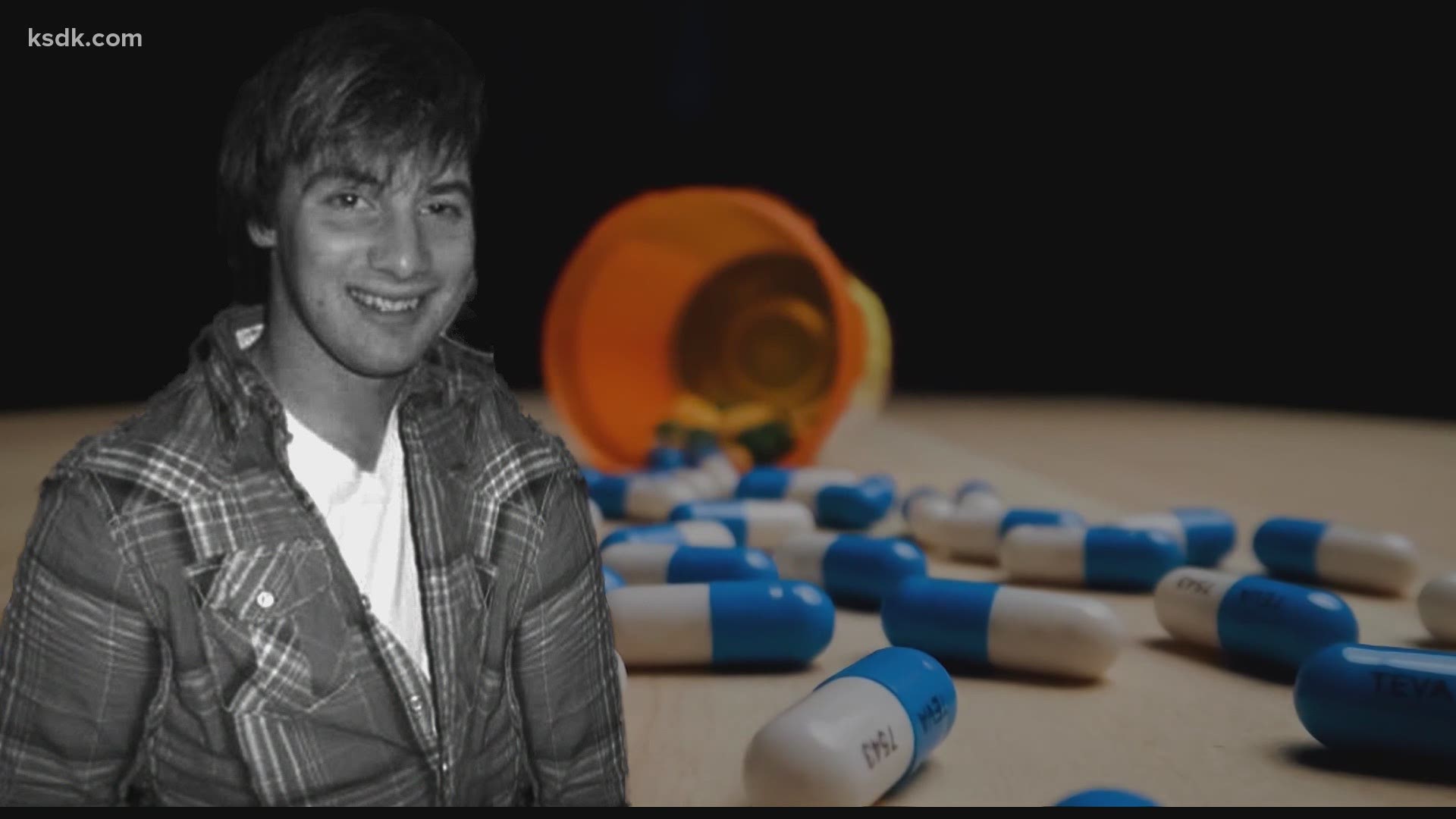ST. LOUIS — Jordan Hampton looked like he had it all.
He was a standout player on his high school football team in Farmington – the kind of place where high school football is king.
But after high school, when the Friday night lights no longer shined upon him, his demons caught up to him. Unresolved feelings over his parents' divorce. Substance abuse within his family all piled up.
By 24, he was homeless. Alone. And addicted to methamphetamine.
“This one particular night I was in a pretty delusional state and I had sat out on the Main Street all night long and got rained on,” he said.
Ultimately, he found his way to a group meeting, where he met a recovering addict who became his mentor. Meeting him, in person, changed his life forever, he said.
Now, at 29, he’s managing 11 recovery houses for Assisted Recovery Centers of America, and he also works as a certified peer specialist for the ARCHWay Institute and PreventED.
In his new role, he has a front-row seat to the rise in overdose deaths – which saw increases across all categories of abuse in 2020.
A lack of in-person meetings like the one where he met his mentor are contributing to the disconnectedness that’s driving overdose deaths, Hampton said.
Opiods saw the biggest spike in Missouri and Illinois.
In 2018, Missouri hit a record with 1,132 deaths. That number dropped by about 3.3% in 2019. But 2020 erased all of the gains in 2019 and broke the state's record.
In 2020, the state surpassed the 2018 record by October.
In Illinois, the numbers were worse.
The state saw a slight decline between the first three quarters of 2019 compared to 2018. But there was a 35% jump in overdose deaths from opioids during the first three quarters of 2020 compared to 2019.
The final numbers won’t be available until all of the autopsies are completed in each state.
Treatment experts said the pandemic has pushed the most basic recovery strategy – the group meeting – out of church basements and other gathering spaces to online instead.
There, social cues and body language are almost impossible to read, noted Aaron Laxton, the director of behavioral health for the Assisted Recovery Centers of America.
“The meeting often isn’t where the most valuable thing is, it’s the meeting after the meeting, that fellowship,” Laxton said.
Hampton noted the movement to online meetings has eliminated some hurdles.
“You can now access meetings all across the world every 30 minutes,” he said.
He said he tries to connect with the adolescents he counsels with PreventED by commenting on what he sees in their backgrounds.
Transportation is also difficult for many, especially those early in their recovery. Money even for a bus pass can be hard to come by after an addict has often burned bridges with family, friends and anyone close to them, Hampton said.
Hampton and Laxton said they believe online meetings will become part of the recovery industry well after the pandemic because it increases access for so many.
But one without the other is far from ideal, they say.
After all, he said, Hampton doesn’t know where he would be had he not met his mentor at that group meeting five years ago.
For more information about treatment, visit PreventED or the Assisted Recovery Centers of America.

